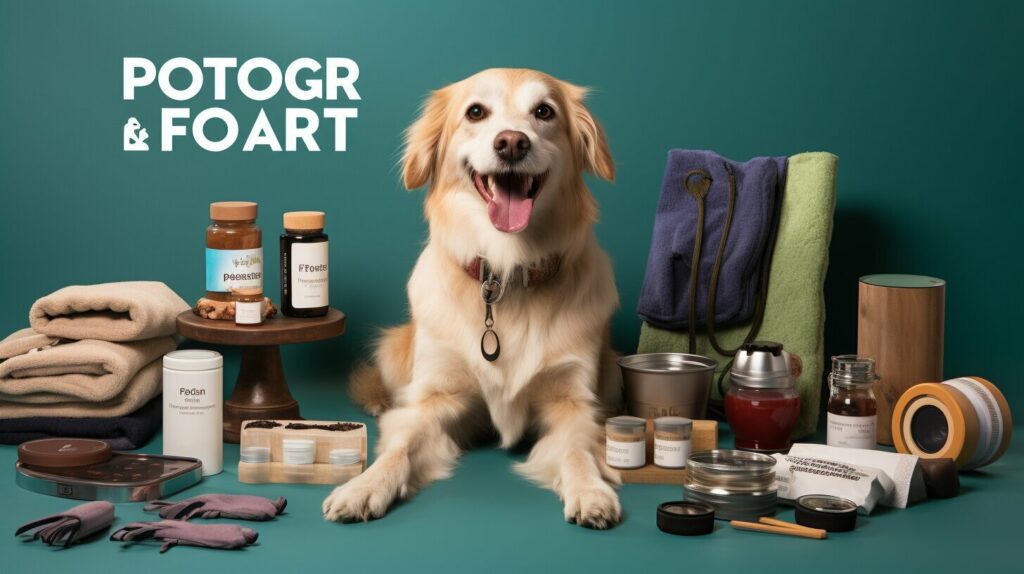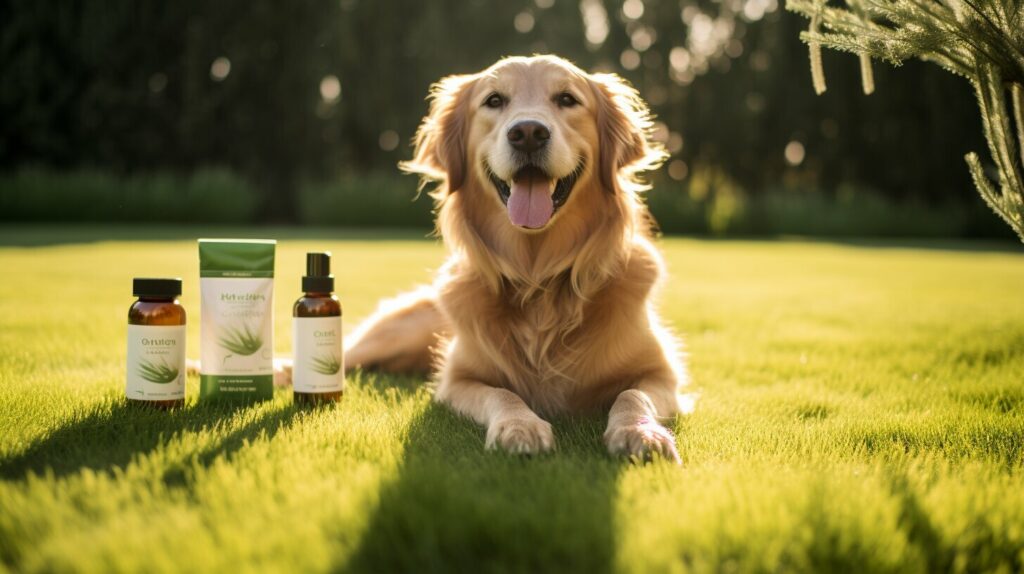If you are a pet owner, you know that your furry friend’s health is a top priority. One of the most common health issues that dogs face is worm infestations. Worms can cause discomfort and even lead to serious health problems if left untreated. That’s why it’s important to recognize the signs of worms in dogs and take action. In this article, we will guide you through the symptoms, health risks, prevention, and treatment options for dogs pooping worms.
Key Takeaways:
- Dogs pooping worms is a common health issue that requires prompt attention.
- Recognizing the signs of worms in dogs is critical for their well-being.
- Regular deworming and maintaining a clean environment can prevent worm infestations.
- If you suspect your dog has worms, seek veterinary assistance for proper diagnosis and treatment.
Types of Worms in Dogs and Their Symptoms
Worms in dog poop can be a serious issue for pet owners. There are different types of worms that can affect dogs, each with their own set of symptoms and health risks. It is important to be able to recognize the signs of worms in dogs and take appropriate action to address the issue.
Roundworms
Roundworms are the most common type of worm found in dogs. They are long and thin, resembling spaghetti, and can be found in a dog’s poop or vomit. Symptoms of roundworm infestation include a pot-bellied appearance, vomiting, diarrhea, and a dull coat. In severe cases, a dog may experience respiratory distress or intestinal blockages.
Hookworms
Hookworms are another common type of worm found in dogs, especially in puppies. They have hook-like mouthparts that attach to a dog’s intestinal wall, causing anemia and potentially fatal blood loss. Symptoms of hookworm infestation include pale gums, lethargy, and dark, tarry stools.
Tapeworms
Tapeworms are flat and segmented, resembling grains of rice, and can be found in a dog’s poop or around their anus. They do not usually cause serious health problems, but can cause anal itching and irritation. Symptoms of tapeworm infestation include scooting or dragging their bottom on the ground, and visible tapeworm segments in their feces.
Whipworms
Whipworms are thin and whip-like, and typically reside in a dog’s cecum, a pouch connected to the large intestine. Symptoms of whipworm infestation include diarrhea, weight loss, and dehydration. In severe cases, a dog may experience anemia and bloody diarrhea.
If you suspect your dog may have any type of worms, it is important to consult with a veterinarian for proper diagnosis and treatment. Your veterinarian may recommend a fecal exam to identify the type of worm and prescribe deworming medication appropriate for your dog’s condition.
Health Risks and Consequences of Worm Infestation in Dogs
If left untreated, a dog worm infestation can have serious health consequences. Worms can interfere with a dog’s digestive system, leading to weight loss, malnutrition, and diarrhea. Puppies and young dogs are especially susceptible to the harmful effects of worms as their immune systems are not fully developed.
Intestinal worms can also cause anemia in dogs, which can be life-threatening if left untreated. Anemic dogs may appear weak, lethargic, and have pale gums.
In addition to affecting a dog’s digestive system and overall health, worms can also weaken a dog’s immune system, making them more susceptible to other infections and diseases. This can have a significant impact on a dog’s long-term health and lifespan.
Moreover, certain types of worms, such as hookworms and roundworms, can be transmitted from dogs to humans. This is especially concerning for families with young children, elderly persons, and those with weakened immune systems, who are more vulnerable to infection.
Preventing Health Risks and Consequences of Worm Infestation in Dogs
The best way to protect your dog from the health risks and consequences of a worm infestation is through a proactive approach to prevention. Regular deworming, good hygiene practices, and routine veterinary care are essential in protecting your dog’s health.
Consult with your veterinarian on the best deworming schedule for your dog, based on their age, breed, and lifestyle. It is recommended to deworm puppies every two weeks until they are three months old and then at regular intervals throughout their lifetime.
In addition, maintaining a clean and hygienic living environment for your dog can help prevent worm infestations. Regular cleaning of living areas, proper disposal of dog waste, and discouraging your dog from eating wildlife or other dogs’ poop can all help keep worms at bay.
By taking proactive measures to prevent and treat worm infestations, you can keep your dog happy and healthy for years to come.
Preventing Worm Infestation in Dogs
Preventing worm infestations in dogs is crucial for their overall health and well-being. By following these practical tips, you can reduce the risk of your dog developing a worm infestation:
- Ensure your dog’s living area is clean and disinfected regularly.
- Do not allow your dog to come into contact with other dogs’ feces or contaminated soil.
- Dispose of your dog’s feces properly and promptly.
- Wash your hands thoroughly after handling your dog or their feces.
Additionally, regular deworming with dog worm medicine is highly recommended. Consult with your veterinarian to determine a deworming schedule that is appropriate for your dog’s age, breed, and lifestyle. There are many different types of dog worm medicine available, including oral medications and topical treatments.
It’s important to note that some over-the-counter dewormers may not be effective or may even be harmful to your dog. Always consult with your veterinarian before administering any medication to your dog, including dewormers.
Diagnosing Worms in Dogs
Identifying the type of worm infesting your dog is important for effective treatment. Here are some signs of worms in dogs to look out for:
- Visible worms in your dog’s feces or vomit
- Small white or rice-like segments around your dog’s anus
- Diarrhea or vomiting
- Weight loss or poor appetite
- Pale gums or lethargy
If you suspect your dog has worms, it’s important to bring a fresh stool sample to your veterinarian for analysis. During a physical exam, your vet may also check for other signs of a worm infestation.
It’s important to note that some worms, such as tapeworms, may not always be visible in your dog’s feces. In these cases, your vet may recommend a blood test to confirm the presence of worms.
For puppies, especially those under six months old, it’s essential to have them checked for worms frequently. Puppies are more susceptible to worm infestations and may not show the typical signs of worms. Collecting a stool sample during a vet checkup can help detect and treat worms early on.
Treating Worms in Dogs
If your dog has been diagnosed with worms, it is important to begin treatment as soon as possible to prevent the infestation from spreading and causing further harm to your pet’s health. Here are some effective methods for treating worms in dogs:
1. Conventional Deworming Medications
Your veterinarian may prescribe medications specifically designed to target the type of worms affecting your dog.
Tip: Always follow your veterinarian’s instructions and be sure to administer the medication for the full course of treatment, even if your dog’s symptoms improve.
2. Natural Deworming Remedies
Some pet owners prefer to use natural remedies to treat worms in their dogs. These can include:
- Garlic
- Pumpkin seeds
- Diatomaceous earth
- Papaya
3. Probiotics
Probiotics can help restore the natural balance of bacteria in your dog’s digestive system, improving your pet’s overall health and helping to eliminate worms.
4. Dietary Changes
Switching to a high-quality, high-fiber diet can help prevent the recurrence of worm infestations in your dog.
5. Regular Deworming
Regular deworming, as recommended by your veterinarian, can help prevent future worm infestations in your dog.
Remember, treating worms in dogs is important not only for your pet’s health but also for the health of your family and other pets. If you have any concerns or questions about treating worms in your dog, be sure to talk to your veterinarian.
Maintaining a Healthy Environment for Dogs
Preventing a dog worm infestation requires more than just administering deworming medications. It also involves maintaining a clean and healthy environment for your beloved pet.
Dogs are prone to picking up worms from their environment, so it is important to regularly clean their living areas. This includes regularly washing their bedding, toys, and any other items they come into contact with. It is also important to keep your yard free of feces and properly dispose of your dog’s waste.
Proper hygiene practices can also help prevent the spread of worms from one dog to another. Always wash your hands thoroughly after handling your dog, especially after cleaning up their waste. Additionally, avoid allowing your dog to interact with dogs that haven’t been dewormed, and always clean up after your dog when in public places.
By maintaining a healthy environment for your dog, you can significantly reduce their risk of a worm infestation and promote their overall health and well-being.
When to Seek Veterinary Assistance
While many cases of worm infestation in dogs can be treated at home with deworming medications, there are occasions where professional veterinary assistance is necessary. If you notice any of these signs of worms in dogs after deworming your pet, it is recommended to seek veterinary care:
- Continued presence of worms in your dog’s poop or vomit
- Decreased appetite or weight loss
- Lethargy or decreased energy levels
- Fever or other signs of illness
- Bloody diarrhea or vomiting
- Abnormal swelling or distention of the abdomen
If you have a puppy, it’s important to follow a deworming schedule and regular visits to the veterinarian. Puppies are more susceptible to worm infestations, so early detection and treatment are critical for their health and well-being.
Additionally, if your dog experiences adverse reactions to deworming medication, such as vomiting or diarrhea, or does not seem to be improving after treatment, seek veterinary assistance immediately. Your veterinarian can provide proper diagnosis and treatment options for severe worm infestations or complications.
Conclusion
In summary, taking care of your dog’s worm prevention and treatment is essential for your pet’s health and wellbeing. A dog worm infestation can be detrimental to their digestive and immune system, causing several health issues. Recognizing the signs of worms in dogs, such as worms in puppy poop, is crucial, and early intervention is highly recommended.
Preventing worm infestations can be achieved through regular deworming and maintaining a clean and healthy environment. If you suspect your dog has worms, it is recommended to seek veterinary assistance and follow the prescribed treatment regimen.
By prioritizing your dog’s health and taking preventative measures, you can ensure that your furry friend lives a happy and healthy life. Remember always to keep an eye out for signs of worms in dogs, such as dog worm infestation, and seek veterinary assistance if necessary.
FAQ
Q: What are the signs of worms in dogs?
A: Some common signs of worms in dogs include diarrhea, vomiting, weight loss, a bloated abdomen, and visible worms in their feces.
Q: How can I prevent my dog from getting worms?
A: Regular deworming, practicing good hygiene, and avoiding contact with contaminated feces are effective ways to prevent worm infestation in dogs.
Q: How do I know if my dog has a severe worm infestation?
A: Signs of a severe worm infestation in dogs can include extreme weight loss, anemia, weakness, and an unresponsive or lethargic demeanor.
Q: Can worms in dogs be transmitted to humans?
A: Yes, some types of worms that affect dogs can be transmitted to humans, so it is important to practice good hygiene and wash your hands thoroughly after handling dogs or their feces.
Q: What should I do if I suspect my dog has worms?
A: If you suspect that your dog has worms, it is best to consult your veterinarian for a proper diagnosis and appropriate treatment options.



